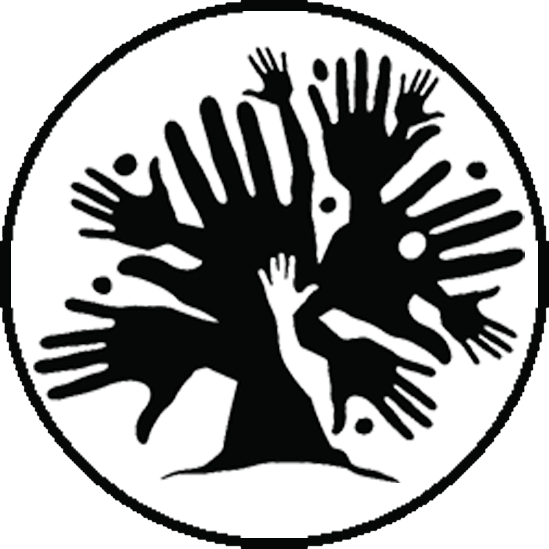Evidensia helps you access and interpret credible research on the sustainability impacts of supply chain initiatives and tools, including standards and certification.
Sci-Hub
Environmental Justice Organizations, Liability, and Trade (EJOLT)
Millenium Alliance for Humanity and the Biosphere (MAHB)
Foster, fuel and inspire a global dialogue on the interconnectedness of activities causing environmental degradation and social inequity;
Create and implement strategies for shifting human cultures and institutions towards sustainable practices and an equitable and satisfying future."
Stanford's MAHB is a nascent global network of social scientists, humanists, and scholars in related fields whose collective knowledge can be harnessed to support global civil society in shifting human cultures and institutions toward sustainable practices and an equitable and satisfying future.
In this site you will find a network of natural and social scientists ("associates") and institutions ("nodes") that collectively construct an inter-disciplinary vision of what sustainability might look like: economic systems that depend on agility and equity without depending on growth, social systems that recognize the limits of our ecosystems, energy and resource infrastructure, and governance: a world where most people can meet their basic needs while enjoying a high quality of life.
This is also a platform where associates and nodes can share resources, connect with one another, post events and coordinate efforts.
Screenshot of MAHB library topics
AuthorAID
The mission — to reduce poverty and improve population health, and to build science and research capacity in developing countries where the problems reside — is likely to engage established scientists who want to help but lack simple means. - Phyllis Freeman and Anthony Robbins
Scientists from developing countries are currently underrepresented as authors in published scientific literature. AuthorAID aims to change that by helping researchers in developing countries write and publish their work. One way it does so is by helping early-career researchers find mentors who can help them with their writing and research and providing them with a user-friendly online space in which they can collaborate, completely free of charge.
As Freeman and Robbins (2005) state in Closing the 'Publishing Gap' between rich and poor, "Authors needing help are not in short supply, nor are potential voluntary mentors. Experienced, often-published scientists at or near retirement appear especially eager to help." AuthorAID's dynamic online community of senior researchers could help thousands of authors around the world who do not have enough analytic and editorial support. To date, nearly 3700 researchers and others, from more than 150 countries, have registered with AuthorAID. Nearly 600 have registered as mentors.
- Search by country, field of research, or keyword to find a researcher
- Sign up to be matched with a mentor or a mentee
- Browse their research communication resource library
- Training events, support to find funding, and more
Find out what AuthorAID looks for in its mentors and mentees. Available in English and Spanish.
Center for Biodiversity and Conservation (CBC)
The Center for Biodiversity and Conservation’s (CBC) mission is to mitigate critical threats to global biological and cultural diversity by: advancing scientific research in diverse ecosystems; strengthening the application of science to conservation practice and public policy; developing professional, institutional, and community capacity. The CBC currently works in the NY metropolitan area, the Bahamas, Solomon Islands, Mainland Southeast Asia, and the Southwestern Research Station in the Chiricahua Mountains of Southeastern Arizona.
Annual Science Symposia
The CBC holds an annual symposium designed to foster interdisciplinary discussion of cutting-edge issues in biodiversity research and conservation.
Symposia topics cover a wide range of conservation issues impacting numerous sciences. Access them to learn more about topics including: biodiversity science and policy, the extinction process, the value of biodiversity to human health, conservation challenges in the face of climate change, the impact of urban sprawl on biodiversity, the role of recent technological advances in conserving genetic diversity, and much more. Video and audio podcasts, posters, and presentations are available.
Downloadable Publications
General Interest
- Protecting Nature
- Life in the Leaf Litter (English / Spanish)
- A Seasonal Guide to New York City's Invertebrates
- Kid's Guide to the Birds of Central Park
- Living With Nature: Cooking for Biodiversity
- Healthy Eating for You and the Planet: Select Seasonally
- Healthy Eating for You and the Planet: Avoiding Pesticides in Produce
- Living With Biodiversity Series
- Guidelines for the Ecotraveler
- Biodiversity in Crisis
Policymakers
Educators
International Society for Ecological Economics (ISEE)
ISEE is a not-for-profit, member-governed, organization dedicated to advancing understanding of the relationships among ecological, social, and economic systems for the mutual well-being of nature and people.
Ecological Economics Journal
The journal is concerned with extending and integrating the study and management of “nature's household” (ecology) and “humankind's household” (economics). This integration is necessary because conceptual and professional isolation have led to economic and environmental policies which are mutually destructive rather than reinforcing in the long term. The journal is transdisciplinary in spirit and methodologically open.











